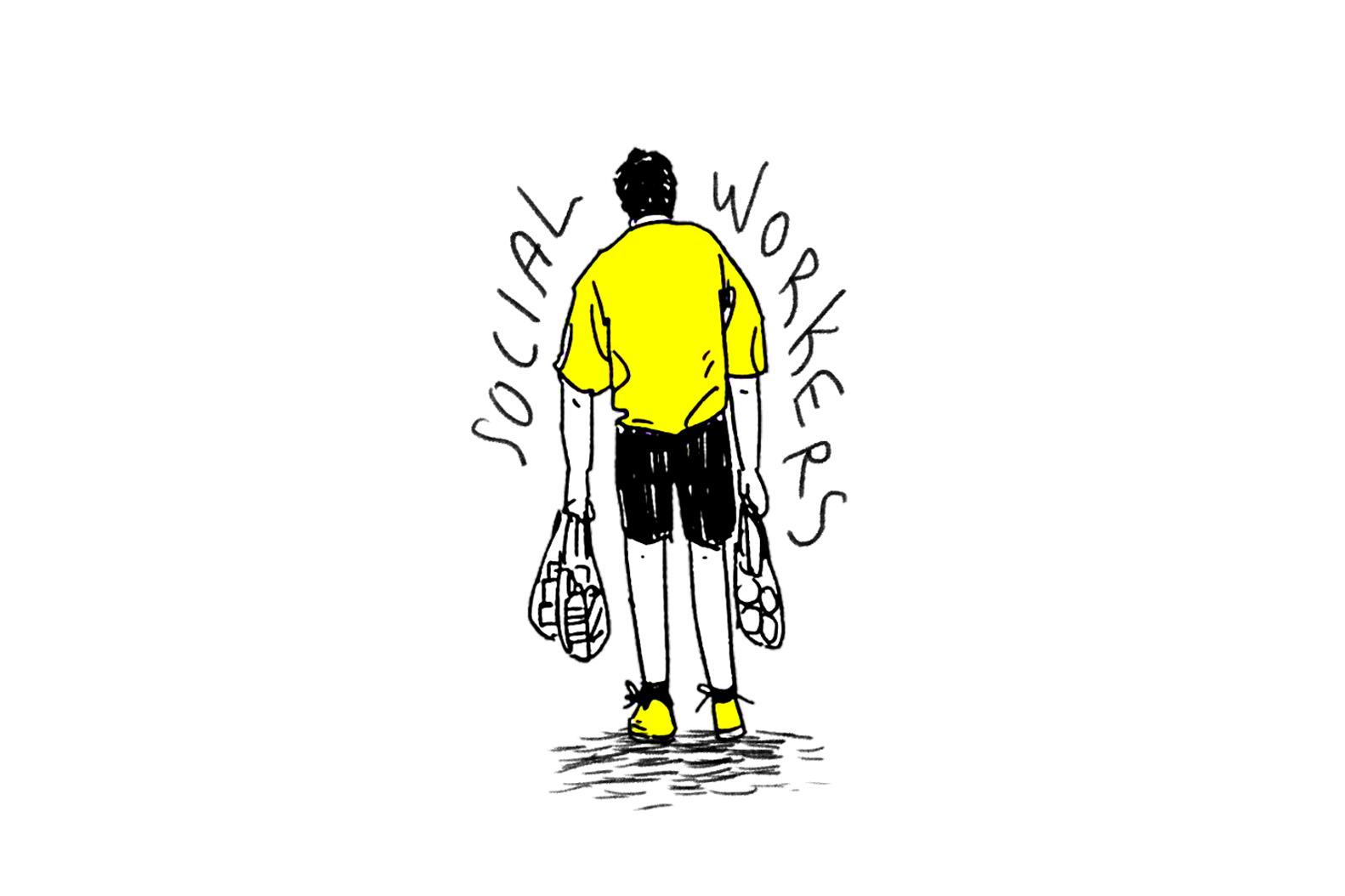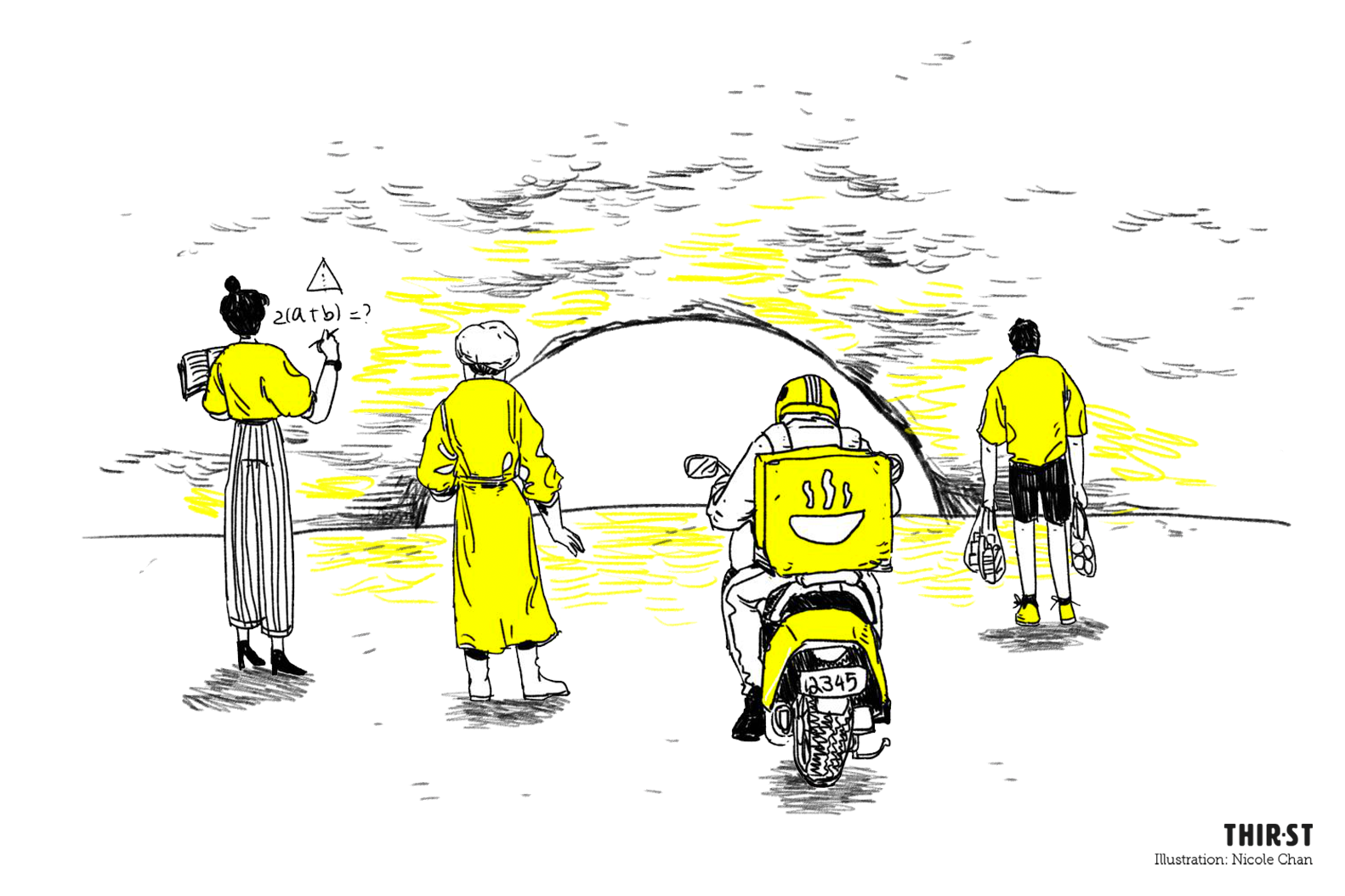The COVID-19 pandemic has lasted for nearly two years now, and the situation right now does not look great.
This is definitely disappointing for many of us who were eagerly waiting for things to normalise. However, amidst this personal struggle, let us not overlook the group most affected by these setbacks.
Frontline workers. These are people like doctors, nurses, teachers, cleaners, social workers and food delivery riders. They’re anyone whose jobs put them at risk of infection.
With the recent rise in cases, many of them may also be facing the risk of being physically and mentally burned out.
Hence, we spoke to some of our friends currently working on the frontlines to find out how we can support them as fellow believers.
Here are five ways we can fuel our frontliners in these difficult times.
5 WAYS TO FUEL THE FRONTLINES
1. Point them back to God
In hectic times, we tend to fixate on the many earthly things we have to do instead of focusing on God.
This was what 26-year-old April*, a secondary school teacher, experienced when her workload was drastically increased in the pandemic.
“It’s so easy to get caught up with the work that I forget that my foremost identity is in Christ. It may seem noble and selfless to give all our time to our students, but sometimes we pursue this at the expense of our godliness,” shared April.

Fortunately, she is always pointed back to God during her frequent meeting with Christian friends. As she found it helpful, she advises us to do the same with frontliners we know.
She explained: “We as frontliners often feel a bit of a saviour complex – we think that it’s our duty to save everyone. Isn’t it comforting to know that Jesus is the saviour and not us?
“We don’t have to despair [even in the face of a seemingly unending pandemic]. We know that neither sickness nor death can ever separate us from the love of Christ, nor can it take away our eternal salvation.”
Besides meetups that encourage and exhort, an edifying word also goes a long way.
25-year-old Intensive Care Unit (ICU) nurse Mel* believes that simply sharing God’s word with her makes a massive difference.
She said: “It really helps when I scroll through Instagram posts during my short break and come across an encouraging verse of God. It reminds me that He is still in control.
“What a blessing it is to be used by Him even in this season!”
2. Bless them with acts of love
We can also support each other through acts of service and love.
For example, Mel’s mother would leave her cups of honey water, clean her spectacles and help wash her medical scrubs on days that she is exhausted after work.
“It is the little things my mother does every day that brightens my life,” said Mel.
Similarly, 23-year-old preschool teacher Joey Tang also finds small acts of kindness encouraging.
She recounted how a student recently gifted her a special drawing of a flower.
That was a simple act of love which gave her added motivation to “keep going and to be a better me”.
Our acts of love can even help spread God’s love to those on the frontlines.
“I remember there was once I teared up during the children’s free-play time. A child noticed and offered me a tight hug,” shared Joey.
“That hug was a memorable one because it gave me the comfort I needed and it reminded me that I’m not alone. God is with me and He loves me.”
3. Be patient and kind to them
This COVID-19 pandemic can be a frustrating time for all of us. Unfortunately, and unacceptably, some may end up venting that frustration onto the frontliners serving us.
As a nurse in the A&E department, 28-year-old Beatrice Phoon has had to bore the brunt of patients’ anger before.
Beatrice raised the example of being shouted at by patients demanding to be fed or brought to the toilet, while nurses are dealing with emergencies.

She explained that it is never the case that nurses do not want to assist patients in their toileting needs or feeding needs.
Sometimes, for instance, the nurses may have noticed another patient who had been previously shouting at the top of his lungs suddenly going all silent.
That to Beatrice is greater cause for concern, which is why less pressing cases are dealt with afterwards.
There are levels to patient care that the untrained eye may not see, so it is best to be patient and not assume things. The last thing we should do is abuse our healthcare workers.
Beatrice isn’t the only nurse who has had to work in such a challenging environment owing to factors like new safety measures and restrictions.
Jan*, a 38-year-old foreign nurse shared that when visitations to hospital wards were no longer allowed, the first people who faced the anger of families were frontline medical workers like herself.
“We can receive many phone calls from families of patients, and some even raised their voices,” said Jan.
While Jan understands that families are worried for their loved ones, she hopes they can still show grace and cooperate with hospital policies.
Our frontline workers like nurses are overwhelmed in this time — we would do well to practise patience and kindness to make their jobs a little easier.
4. Be there for them
When we are in a low moment, one of the worst things that can happen is having to go through it alone.
Not having a listening ear makes a trying situation a lot tougher. If we bottle our negative emotions up, it can also impact our mental and even physical health.
Jan shared how having a tight-knit community in her life has made all the difference so far: “We have a testimony day through Zoom every other week.
“As we are all nurses, I can relate what I’m experiencing, and they can also share their challenges with me. Through this, we know that we are not alone.”
Jan also added that God has used her to be a blessing to fellow colleagues during their short breaks.
“I listen to my friends and acknowledge what they are going through. I also remind them they are doing good and that whatever sacrifices they make are not being wasted,” she shared.
Who can we be a listening ear to in this season?

You don’t have to be in the same ward as Jan to be a blessing. All it takes for anyone to make a difference is by showing care and concern.
Ritchell Ho, a 25-year-old social worker who serves low-income families, highlighted how helpful it is when loved ones like family members make the effort to be present for frontliners by checking in on them.
Ritchell added that people who want to offer support do not need to present solutions. All that’s needed is the assurance that they will be there with the frontliner “through thick and thin”.
“Somehow, this collective sense of togetherness does help me to take my eyes off my own battles at times, and find the strength to take the next step,” she reflected.
5. Empathise with them
One important thing I realised through my conversations with frontliners is that each one faces his or her own unique challenges.
For example, 19-year-old Samuel Ang, a part-time food delivery rider, faces the unique challenge of people “underestimating” his work.
He shared: “There’s a lot more that goes into it rather than just cycling. Some people think my job is so fun as I just cycle every day.”
In reality, Samuel’s job can be dangerous as he has to cycle on roads. This is made worse on rainy days, as he still has to deliver food on time.

Samuel has also seen other food delivery riders work twelve-hour shifts, sometimes even skipping breaks.
He explained they do this to support their families, and hence cannot afford to miss any opportunity to earn extra income.
Not everyone knows about these struggles, which is why Samuel believes it’s important to reach out to such frontline workers. It is a practice that develops empathy for one’s fellow man.
“By doing this, you get to develop a deeper understanding of different issues that you might otherwise not have known,” reflected Samuel.
Such conversations can help us understand the unique issues people face, and enable us to effectively support each individual according to their needs.
By putting in this effort to love and serve our frontliners, we reflect God’s heart of loving those who are weary.
So let us not miss any chance to play our role as salt and light in this world. Let’s be the fuel that will keep our frontliners going.
* Name has been changed for confidentiality.
- Think of someone you know who is a frontline worker.
- Based on the author’s tips, what is one practical way can you support those on the frontlines?
- Commit this person to the Lord in prayer. Then be a blessing to him or her this week!









